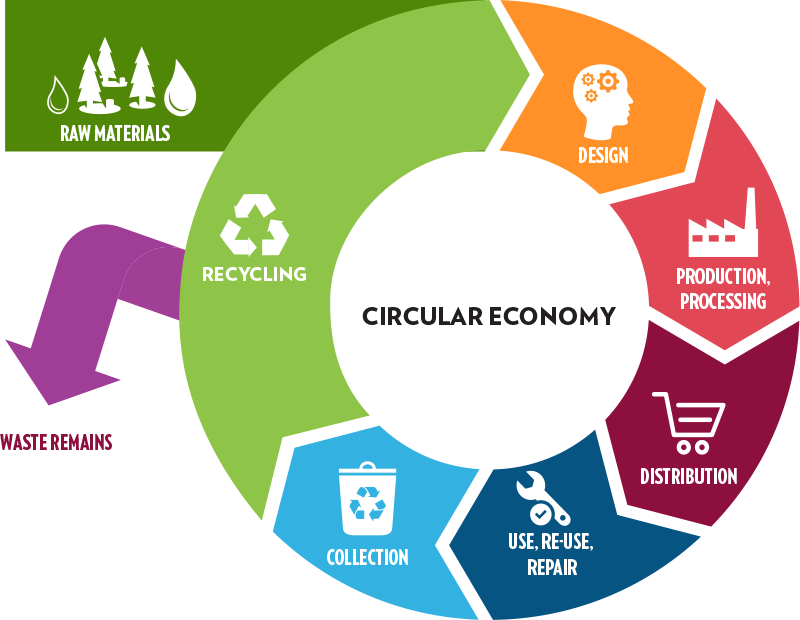Circular Economy Startups: Paving the Way to a Greener Future
Circular Economy Startups: Paving the Way to a Greener Future https://theraise.eu/wp-content/uploads/2023/10/1679835952267.png 800 620 RAISE fosters startup growth and scale-up within and across Europe https://theraise.eu/wp-content/uploads/2023/10/1679835952267.pngThe way we use and reuse things can have a big impact on the planet. When we throw things away after using them only once, it creates a lot of waste. But there’s a better way to do things, and some smart people have started new businesses to show us how. These businesses are called startups, and they are changing the way we think about the stuff we use.
What’s a Circular Economy?
Imagine if instead of throwing things away, we used them over and over again. That’s the idea behind a circular economy. In a circular economy, we make, use, and then recycle or repair things, so they don’t end up in a big pile of trash. This way, we waste less and take better care of the Earth.
The Role of Circular Economy Startups
Circular economy startups are like the heroes of this new way of thinking. They come up with clever ideas to make sure things don’t go to waste. Let’s look at some things they do:
1. Recycling Magic: Some startups find new ways to recycle old stuff. They turn plastic bottles into new clothes, or they make furniture from wood that’s been used before.
2. Sharing is Caring: These startups help us share things we don’t use all the time, like bikes or tools. Why buy something when you can borrow it from a neighbor?
3. Fix-It Friends: Have a broken toy or a wonky toaster? These startups have people who can fix them for you, so you don’t have to throw them away.
4. Second-Hand Stars: Some startups are all about selling things that have already been loved by someone else. You can find great deals on clothes, toys, and more.
5. Less Packaging, Please: They say first impressions matter, but what about the box the product comes in? Some startups work to make packaging that’s better for the Earth.
Why Circular Economy Startups Matter
Circular economy startups help us in a few important ways:
1. Less Trash: By reusing and recycling, we throw away less stuff. That means less trash in landfills, which is good for the environment.
2. Saving Money: When we share or buy second-hand, we save money. It’s a win-win – we spend less, and the Earth benefits too.
3. Creating Jobs: Circular economy startups need people to work for them. This means more jobs in the community.
4. Caring for the Planet: By using things wisely, these startups help take care of our beautiful planet. They reduce pollution and save energy.
Embracing Circular Economy Startups: A Path to a Sustainable Tomorrow
Circular economy startups are showing us a better way to live. They remind us that the things we use don’t have to end up in the trash. Instead, they can be turned into something new, borrowed from a friend, or repaired when they break. These startups are teaching us to be kind to the Earth and to our wallets. So, next time you see a circular economy startup, remember that they’re the heroes of a greener, cleaner, and more sustainable future.
Photo via SAP Blogs











